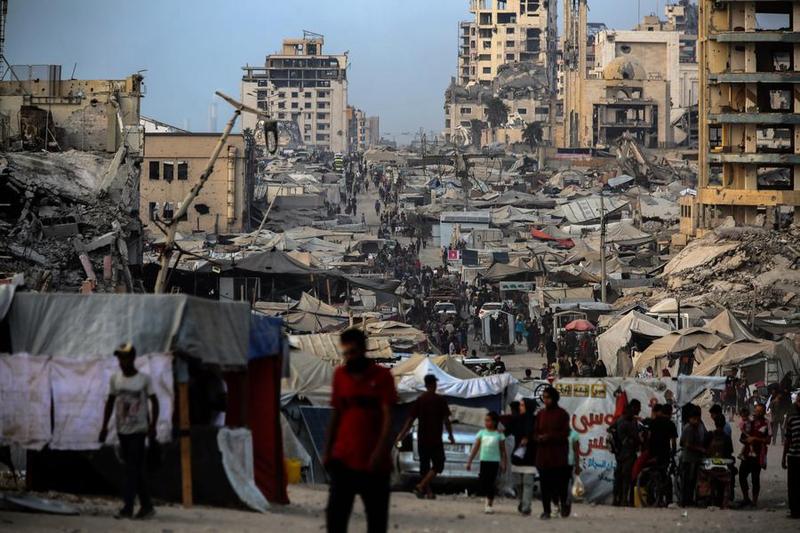Gaza's lifeline frays as aid workers become refugees themselves


GAZA - For years, international aid organizations served as Gaza's fragile safety net, helping more than two million people endure the suffocating blockade imposed since 2007.
They provided food, medicine, and schooling, often the difference between survival and despair.
But as war drags on, even the aid workers - once the backbone of this system - have themselves become displaced, hungry, and afraid. As the world observes World Humanitarian Day on Tuesday, their lives now mirror those of the people they were hired to help.
Before the war, Reham Said, a 36-year-old United Nations employee from Gaza City, considered herself among the fortunate few. Her salary offered stability, a modest but comfortable life for her husband and four children.
Today, her family moves from shelter to shelter, driven out by bombings, shortages, and fear.
"From the fourth day of the war, my journey of displacement began," she recalled. "I moved more than ten times. Once, my sister's house, where we had taken refuge, was bombed. We emerged from the rubble injured, but we survived."
Daily existence has been stripped to the barest tasks. Bread, once bought at bakeries, is now baked over open fires. Water and electricity are scarce. Laundry is done by hand.
"My children often go to bed hungry due to the flour shortage and the closure of crossings," she said.
Even when she had money, markets were empty, and banks ran dry. Her husband was injured while trying to collect aid near the border. Since then, the family has survived on scattered handouts and overpriced goods.
Samar Dawas, 42, worked as an administrator for another international organization. She described her prewar life as "stable," supported by her salary and a modest home in Gaza City with her husband and two children.
That stability collapsed in the first week of fighting. Her neighborhood was bombed, and the family fled at night, carrying only clothes and identity documents. They now live in a school turned shelter, sharing a classroom with dozens of strangers.
"I wake up at dawn to help distribute bread and water, then return to my children to prepare a simple meal, often lentils or rice if available," she said. Electricity is gone, nights blur into days, and fear fills the silence.
"My children ask when we will return home, and I have no answer. I try to distract them with stories or games, but fear overwhelms them."
The war has reduced aid agencies to shadows of themselves. Restrictions and bombardments have crippled their ability to deliver food, medicine, and relief. After a brief ceasefire ended in March, Israel tightened the blockade, worsening shortages of flour, fuel, and medicine. United Nations officials now warn that famine looms for most of Gaza's population.
At shelters, workers like Reham and Samar juggle the roles of employee and survivor. Reham tries to give her children improvised lessons at home. Samar registers displaced families while her own children sleep on the classroom floor.
"Even the simplest things, like finding a clean glass of water or a quiet place to sleep, have become daily challenges," Samar said.
Both women - once providers of stability - now plead for international intervention, not just for Gaza's civilians but also for the aid system itself.
"UN agencies are Gaza's lifeline, and without them, the situation would be much worse," Reham said.
Samar added, "I never imagined living and working in the same place, with my children sleeping on the floor among hundreds of strangers. The war has taken away our homes, our security, and our simplest dreams."
































